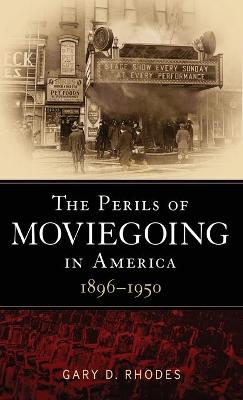This title recaptures the lost history of the physical and moral perils that faced audiences at American movie theatres during the first fifty years of the cinema. During the first fifty years of the American cinema, the act of going to the movies was a risky process, fraught with a number of possible physical and moral dangers. Film fires were rampant, claiming many lives, as were movie theatre robberies, which became particularly common during the Great Depression. Labor disputes provoked a large number of movie theatre bombings, while low-level criminals like murderers, molesters, and prostitutes plied their trades in the darkened auditoriums. That was all in addition to the spread of disease, both real (as in the case of influenza) and imagined ("movie eyestrain"). Audiences also confronted an array of perceived moral dangers. Blue Laws prohibited Sunday film screenings, though theatres ignored them in many areas, sometimes resulting in the arrests of entire audiences. Movie theatre lotteries became another problem, condemned by politicians and clergymen throughout America for being immoral gambling.
"The Perils of Moviegoing in America: 1896-1950" provides the first history of the many threats that faced film audiences, threats which claimed hundreds, if not thousands, of lives.
- ISBN10 1441110194
- ISBN13 9781441110190
- Publish Date 26 January 2012
- Publish Status Active
- Publish Country US
- Imprint Continuum Publishing Corporation
- Format Hardcover
- Pages 384
- Language English
